Think Indians Don’t Deserve Public Facilities Like Tejas Express? Here Are 5 Reasons We Do!
Here are some endearing stories of community effort that will reinstil your faith in the power of people.
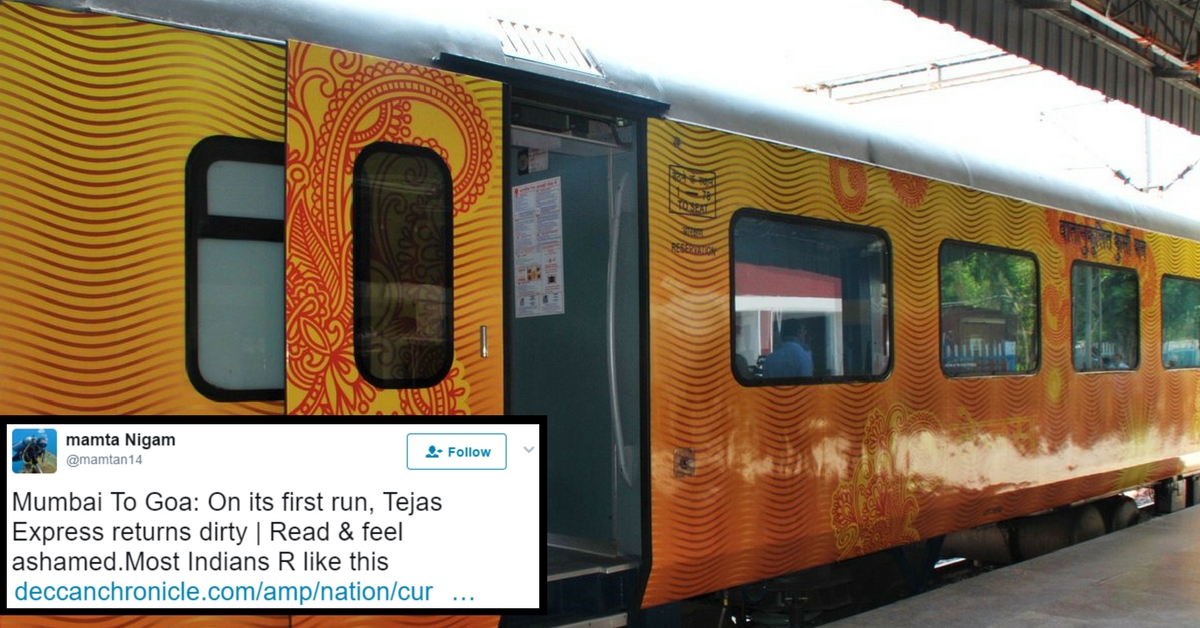
With recent incidents of vandalism and dirtying of the Tejas Express, opinions were quick to follow, some even citing why Indians don’t deserve the good things that they can’t take responsibility of.
Come to think of it, the incidents were indeed saddening. However, time and again, people in India have showcased exemplary enactment of civic duties as a community that prove that we as Indians, do deserve the good things.
Here are some instances of civic sense displayed by communities in India that will reinstil hope within us all:
1. An ‘Adarsh’ rail coach that has been maintained by the passengers for the last 10 years
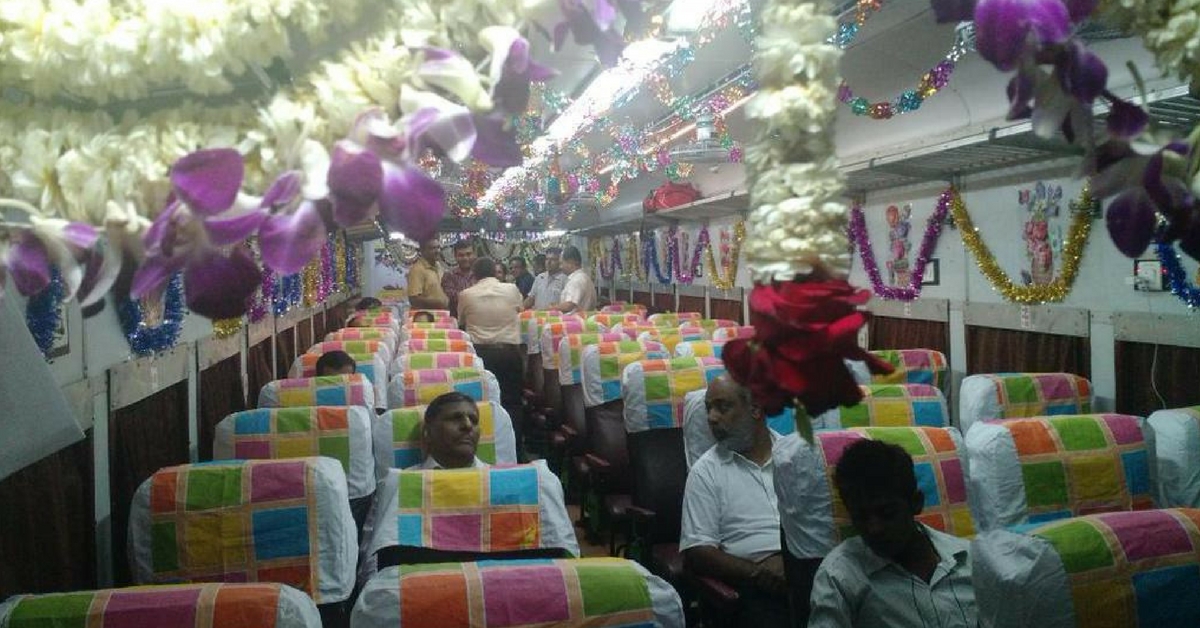
Started as an experiment by Bipin Gandhi, a Nashik resident, who was prompted after overhearing people appreciating the perks of air travel. He decided to make Indian trains as convenient and founded Rail Parishad, an NGO, in 2001. Following that, he spent the next few years conceptualising with like-minded individuals. Finally by 2007, a delegation of 20 members met the officials of the Indian Railways and succeeded in getting a special coach allotted on the Panchavati Express.
The C3 A/C coach allows entry only to monthly season ticket (MST) holders and all of its passengers follow a voluntary code of conduct that has ensured it a place in the Limca Book of Records for being the first of its kind. With voluntary contributions from regular passengers, the coach also maintains a well-equipped first-aid box, a lost-and-found box and a diary containing details of all its commuters.
Together with the commuters, the Rail Parishad has formed an informal support system that enriches the life of every passenger. Birthdays, anniversaries and even wedding receptions for the newly married are hosted on the Adarsh Coach.
2. The cleanest village in Asia, thanks to the collective effort of all the community members
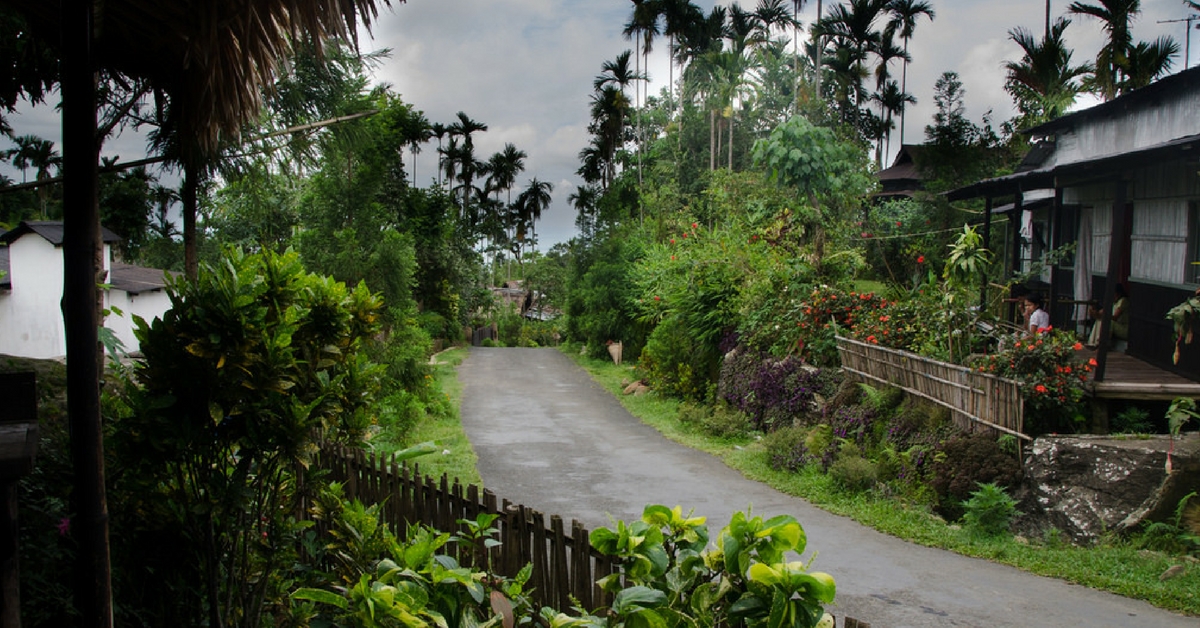
Mawlynnong, a village touted to be the cleanest in the Asian continent and located around 90 km from Shillong, is the perfect example of a community-based initiative. With collective involvement of every person in the village, the community has managed to maintain its ambiance as pristine as possible.
Taking the responsibility very seriously, every person voluntarily takes care of the cleanliness pertaining to the village, as one would do in their houses. Here, you will find roads being cleaned or leaves being picked up by anyone pretty often. You’ll even see garbage bins made of bamboo in almost every nook and corner of the village.
Citing cleanliness as an age-old tradition and a way of life for the residents, the village also boasts of a 100% literacy rate. In 2005, Mawlynnong was recognized as the cleanest village in India, shortly after being declared the same in Asia.
The effort of the people and their relentlessness should inspire others villages, towns and cities across the country to exhibit the ‘spirit of cleanliness’ through self-sustained efforts.
3. Together they teamed up to clean Dal Lake, god’s own artwork
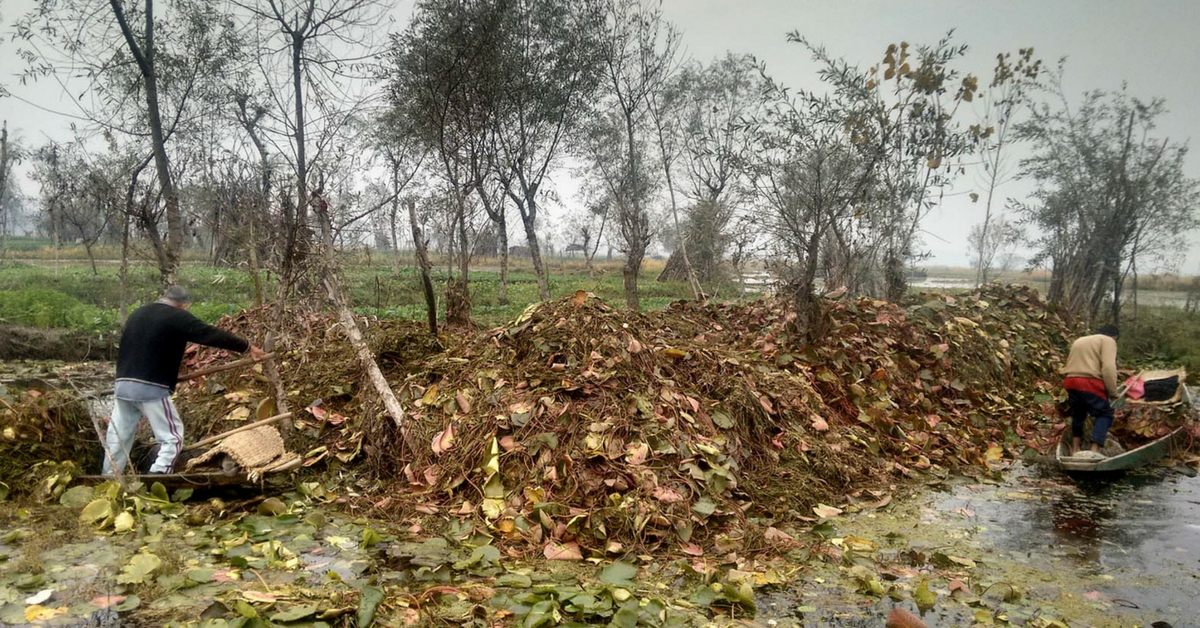
No mention of Kashmir remains complete without including the Dal lake, closely followed by memories of the yesteryear song “Yeh chand sa roshan chehra” that has legendary Shammi Kapoor crooning over the beauty of the young Sharmila Tagore on a shikara.
However, the rampant rise in the levels of pollution worldwide in the last decade alone has spared no country or its states, and Dal lake was no exception. Falling prey to a web of weeds and garbage, the situation went on to get worse with livelihoods of people at stake.
Finally, in collaboration with NGO Goonj, 200 residents of Moti Mohalla village (Asthawol area of the Dal Lake) gathered to work on cleaning Dal. Bringing their own boats and paddles; they extracted the waste and uprooted weeds manually, braving dense fog and cold.
Over 500 boatloads of weed were extracted and interestingly, some of the extracted weeds became fodder for the cattle and the rest was left to decay and form manure.
4. Government schools across Maharashtra are digitally equipped purely through community funding
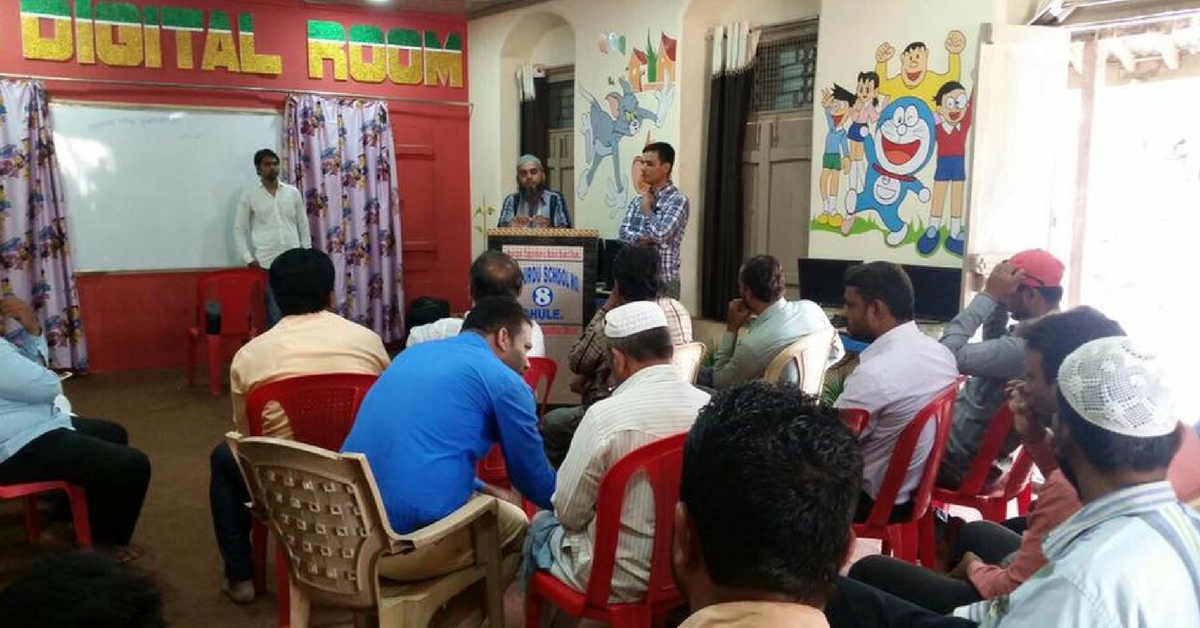
A government primary school in Vadgaon Gund, about 200 km from Mumbai, has been transformed over the last one year — tablets and interactive projectors have replaced notebooks and blackboards. All this through funds accumulated by the people themselves.
The school was able to collect about ₹3 lakh, out of which they were able to buy solar-charged tablets for all the students and an Xbox containing an interactive syllabus.
And this is not an isolated initiative.
In the village of Dhekusim, falling under Jalgaon district, a Marathi-medium school now has an LCD projector, a laptop and Wi-Fi-enabled classrooms. According to the headmaster, the changes, including a 2,000-square-foot compound wall and revamped classrooms, came from the funds raised from villagers and not through any government intervention.
In fact, close to 47,000 out of 65,000 government primary schools in the state have been digitally equipped only through crowdfunding.
5. A cleanliness drive that converted one of Mumbai’s dirtiest beaches to one of the cleanest.
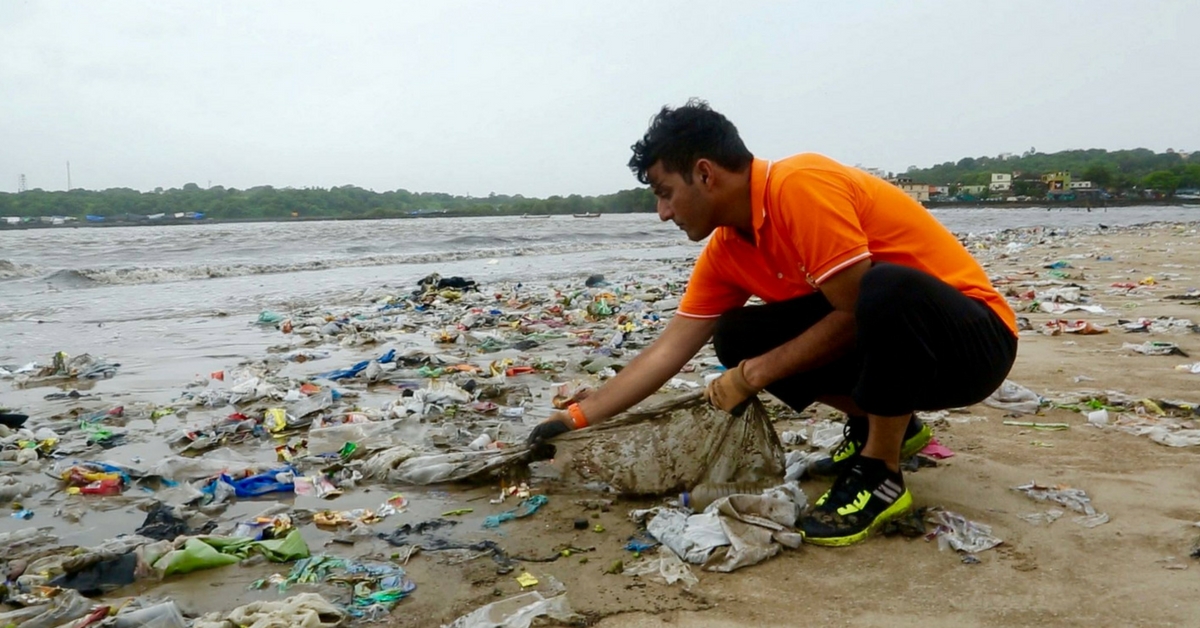
Afroz Shah, a city-based lawyer, along with local residents and fishermen, removed 4,500 tonnes of trash from Versova beach, which had so much garbage that one could not see the sand anymore.
Starting in October 2015, Afroz, along with an old neighbour, Harbansh Mathur, started clearing the unbelievable 2.5-km stretch of litter. Joined by 40 other residents from Versova shortly, weekly clean-up drives were initiated, and soon, Versova Residents’ Volunteers or VRV continued to clear the litter from the shoreline. People from all walks of life that included celebrities, policemen, lawyers and fishermen became part of the movement.
Around 69 weeks later, Versova beach was beyond recognition — in a very heartening way.
Its epic transformation was recognised by United Nations Environmental Programme (UNEP), which called it the world’s largest beach clean-up ever and even bestowed Afroz with the UN’s top environmental accolade – Champions of the Earth award, last December.
Though changes can’t happen overnight, one could definitely hope that these examples prove inspirational, helping people inculcate the virtues of civic sense and sensibility.
Like this story? Or have something to share? Write to us: [email protected], or connect with us on Facebook and Twitter.
NEW: Click here to get positive news on WhatsApp!
If you found our stories insightful, informative, or even just enjoyable, we invite you to consider making a voluntary payment to support the work we do at The Better India. Your contribution helps us continue producing quality content that educates, inspires, and drives positive change.
Choose one of the payment options below for your contribution-
By paying for the stories you value, you directly contribute to sustaining our efforts focused on making a difference in the world. Together, let’s ensure that impactful stories continue to be told and shared, enriching lives and communities alike.
Thank you for your support. Here are some frequently asked questions you might find helpful to know why you are contributing?


This story made me
-
97
-
121
-
89
-
167











